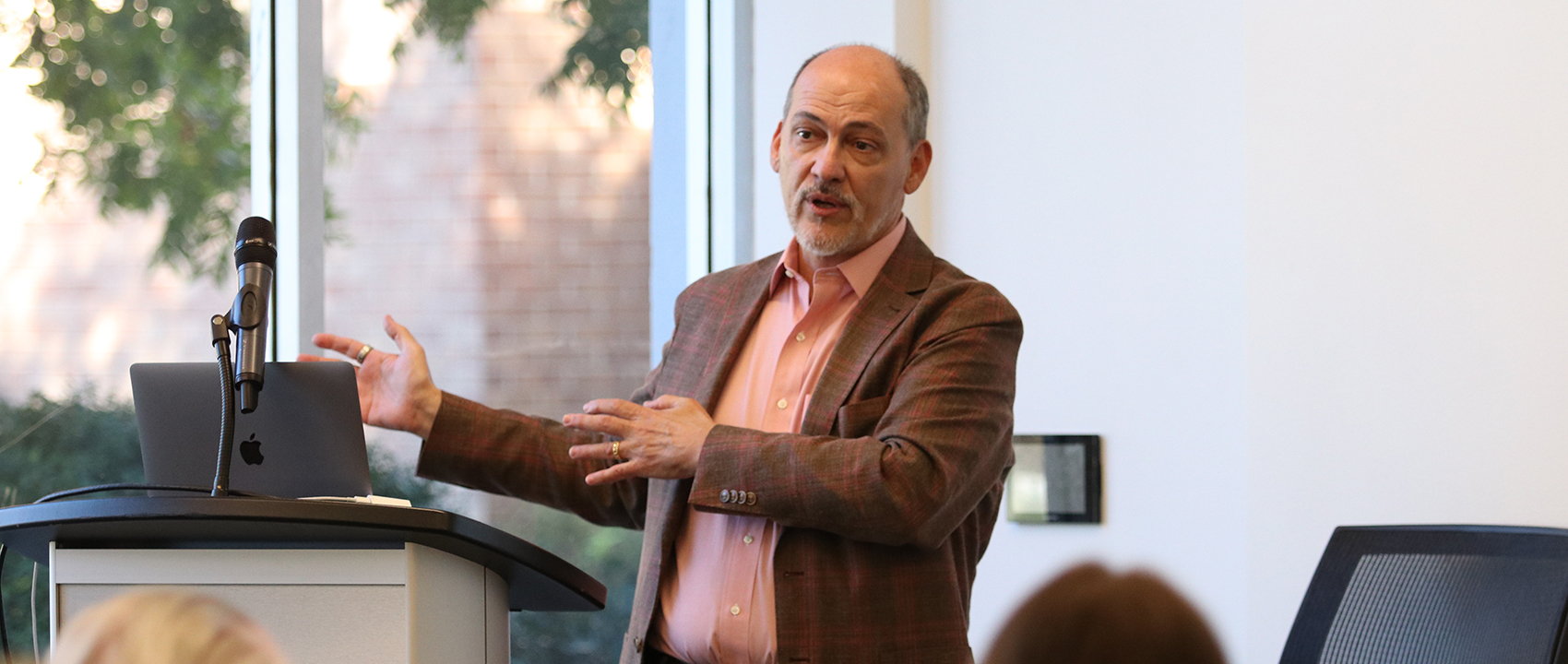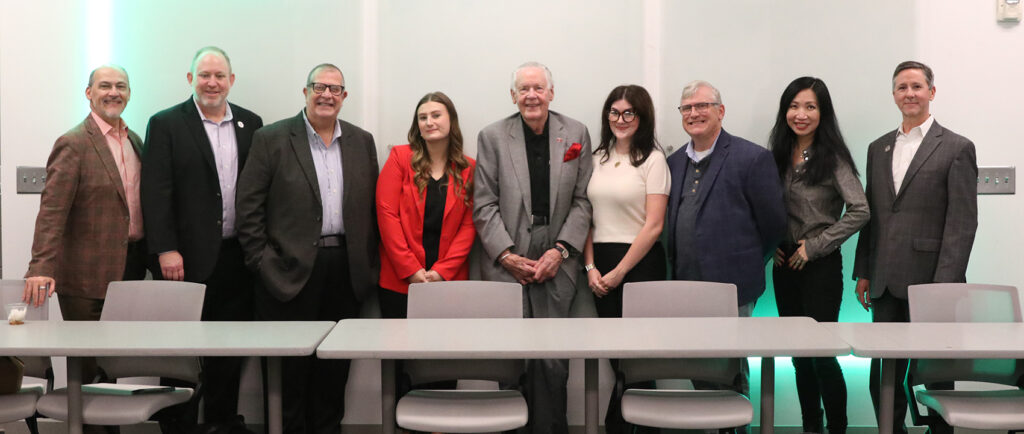Yarbrough Distinguished Lecture Series: Rodrigo A. Sierra

Yarbrough Distinguished Lecture Series: Rodrigo A. Sierra
The University of Georgia’s Grady College of Journalism and Mass Communication welcomed Rodrigo A. Sierra, chief communications officer and senior vice president at the American Medical Association (AMA), who delivered the second Yarbrough Distinguished Lecture on Nov. 1, 2024.
In his lecture, Sierra presented far-reaching dangers from misinformation, especially in crisis situations, and gave some valuable insights into how to oppose its influence. Drawing on personal experiences, including his early career as a reporter during the 1989 USS Iowa explosion, he learned that disinformation campaigns often result from and the importance of source questioning. He recalled how the Navy falsely accused two sailors of deliberate action to cover up systemic problems on the Iowa as a stark example of how disinformation manipulates public perception with devastating consequences. He also spoke to the work of misinformation in the COVID-19 pandemic that exacerbated the public health risk and resulted in a tragic number of preventable deaths.
“We need people to stand up for truth and to also for things that are not justified as truth,” said Sierra, who has worked at the AMA more than 12 years.
Sierra said such organizations as the AMA should “step up and lead” to narrow the gap in information. The AMA in 2020 took proactive action when much misinformation was shared about COVID-19 treatments. Led by AMA President Dr. Patrice Harris, the organization utilized powerful, science-based communications to push back against the misinformation and protect the integrity of medical science. Sierra shared that Dr. Harris’s strong response of “You could lose your life” to the former President’s endorsement of hydroxychloroquine was a turning point in the AMA public health messages. This was a bold approach that reflected the need for voices with credibility to take up the challenge of misinformation head-on, even if this means political pressure. He also added, “Now, it’s on everybody’s fingertips, either you have few followers or even more on social media, these influence the sources that we look out for information.”

Continuing with “deweaponizing” the tools, Sierra spoke about “pre-bunking” and the Truth Sandwich, giving the audience critical thinking skills. Where pre-bunking prepares them to resist the false claims by introducing them to weakened doses of misinformation, the truth sandwich-states the facts, debunks the misinformation, and restates the facts, all help to reiterate the truth in easily digestible information. Sierra concluded that these techniques are important in the post-truth era, when objective reality is often undermined, in order to empower citizens to navigate information responsibly.
In conclusion, Sierra reflected on the work he had done with the Crisis Communication Think Tank (CCTT) at UGA, where he reiterated that READINESS not preparedness, is what is going to help deal with “sticky crises.” These are complex and recurring issues that demand dynamic responses. He urged READINESS as proactive-engagement and rapid-adjustment activity, not mere preparation. Sierra’s comments underlined the continued struggle with mis- and disinformation, reminding communicators that vigilance, critical thinking, and leadership are key in safeguarding public trust during crises.
“We’re still in the sticky crisis – about disinformation and misinformation,” he said.
Authors: Lila Maiolo, NaYoung Song and River Gracey